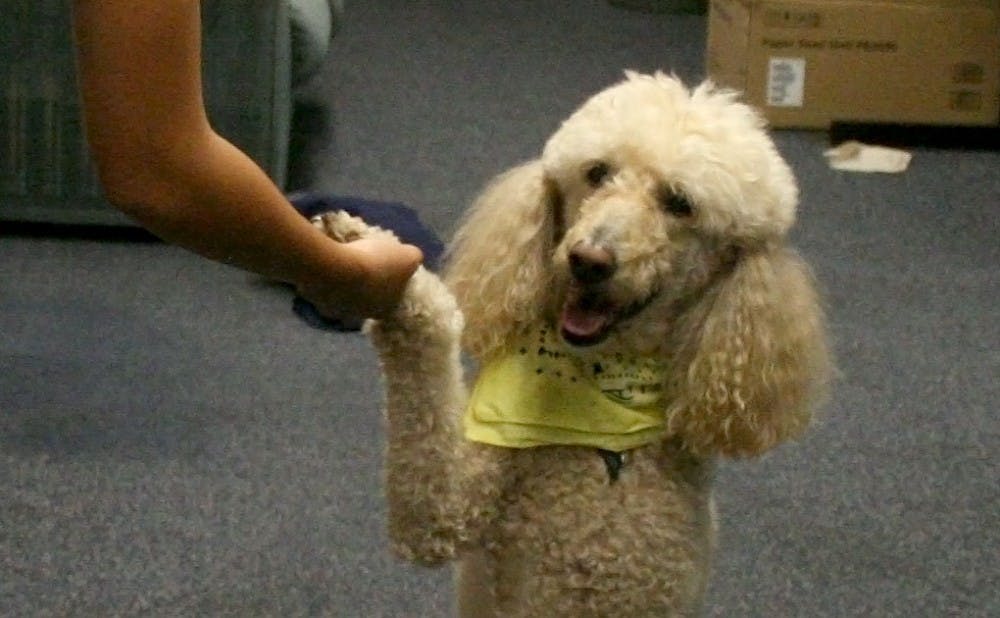Brian Hare, associate professor of evolutionary anthropology, is bringing the lab testing home.
Hare, who runs the Duke Canine Cognition Center, wanted to give owners a way to better understand their dogs’ minds outside of a laboratory setting. To do so, Hare teamed up with Vanessa Woods, a research scientist in the department of evolutionary anthropology, to create a cognitive test for dogs on the website Dognition.com. Taken by the dogs’ owners, the test is meant to provide greater insight to the dog’s mind and personality, thereby strengthening the relationship between the owner and the dog.
After doing research with dogs at the Duke Canine Cognition Center, Hare approached Kip Frey, director of the law and entrepreneurship program and current Dognition CEO and president, with the idea for the website.
“He thought it would be interesting and fun to allow testing he was doing on lab animals to be done at home to measure peoples’ dogs rather than the few dogs they were able to do at the lab,” Frey said.
Frey said the site uses current research and findings to provide a way for people to understand their dogs as cognitive individuals rather than breed stereotypes. First owners take a test and then learn more about their dog through a series of science-based games, which can be played on a mobile web app.
The data collected from these games is analyzed and put into a report that explains the dog’s cognitive strengths and weaknesses, helping the owner to understand the particular personality of his furry friend.
“People loved coming to test their dogs,” Woods said. “Wouldn’t it be great if lots of people could do this all over the world?”
Dognition is currently working with Wags for Tags, a North Carolina-based organization that rescues dogs from kill shelters and pairs them with veterans. The dogs undergo training in order to be able to provide comfort and support for veterans with psychological and emotional impairments, including PTSD.
As part of Wags for Tags’ partnership with Dognition, veterans taking part in the program are given a free membership to the website, which allows them to strengthen their bonds with their dogs.
“Dognition is a way to help them better understand their dog and help them feel more connected to their dog,” Woods said.
Dr. Bruce Capehart, assistant professor of psychiatry and behavioral sciences, said he has witnessed the positive effects of therapy dogs firsthand, as around half a dozen patients in his clinic have a therapy dog to help with PTSD symptoms.
Although therapy dogs are an effective intervention for patients with PTSD, Capehart said he wouldn’t describe their use as a “treatment.”
“A treatment is something we do that we expect has a beginning and ending time frame, and we expect a certain specific outcome from it,” Capehart said. “I don’t think we would be looking at introducing a dog into a veteran’s life for a period of six months, taking it away and expecting the veteran to be better.”
Capehart said there are two ways therapy dogs can be helpful to veterans.
Therapy dogs are alert to the emotions of their owners, and are therefore able to provide feedback to help owners get in touch with their own emotions. The dogs are also able to keep the owners calm in anxiety-provoking situations, such as being in a large crowd.
Dogs can also help veterans sleep because people with PTSD sleep easier knowing that their dog will wake up and bark if anything bad is happening, Capehart said.
“[They are] like buddies on duty in the middle of the night in a combat zone, allowing them to get some sleep,” he said.
Get The Chronicle straight to your inbox
Signup for our weekly newsletter. Cancel at any time.

